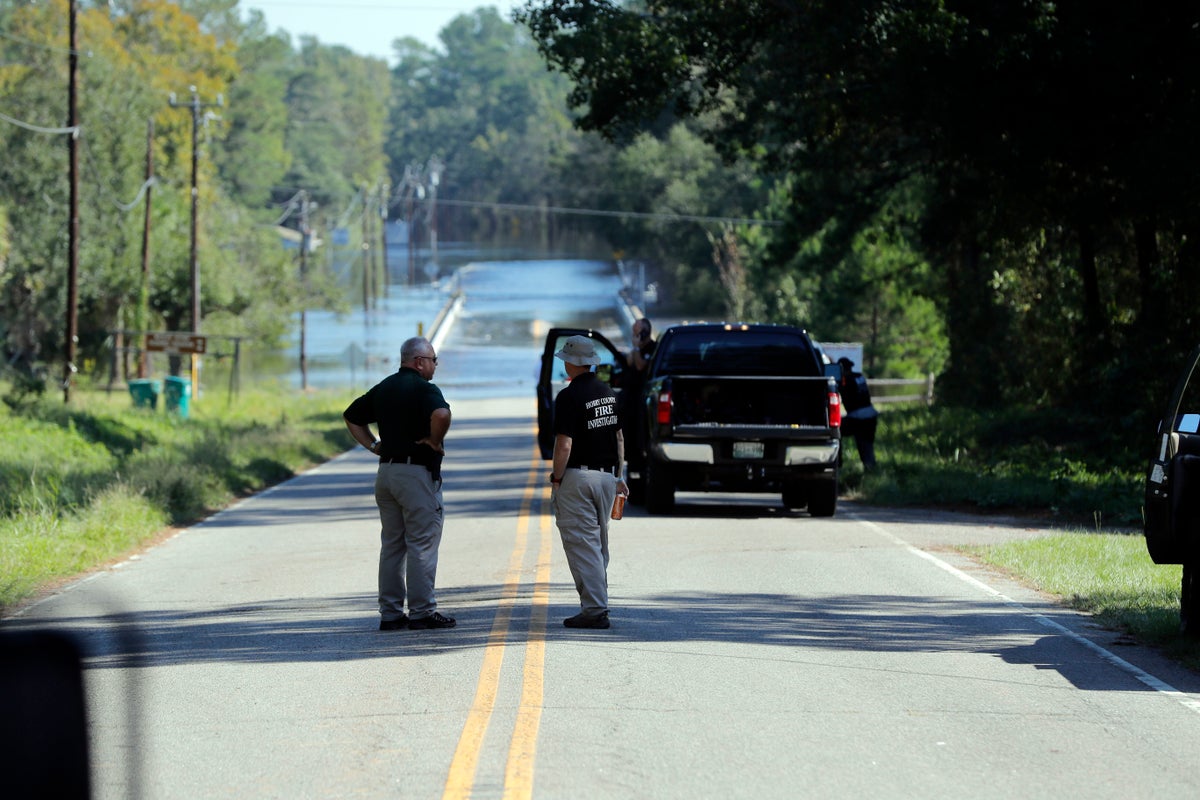
Criminal charges have been dropped against a former deputy who was helping to transport two mental health patients who drowned while locked in the back of a van that was driven into floodwaters caused by 2018's Hurricane Florence in South Carolina.
The van's driver, former Horry County Deputy Stephen Flood, was convicted in May of two counts of reckless homicide and is serving nine years in prison. But authorities decided to drop involuntary manslaughter charges against former Horry County Deputy Joshua Bishop, who was riding along and didn’t realize until it was too late that Flood was risking their lives, Solicitor Ed Clements told news outlets.
Clements said Bishop did everything he could to rescue the women. He said Flood's trial helped clear up Bishop's role in the September 2018 deaths of Wendy Newton, 45, and Nicolette Green, 43. The two women had been involuntarily committed for mental health care and were being transferred for treatment outside Horry County.
While judges agreed to the commitment orders for Newton and Green, their families said they were not violent. Newton was only seeking medicine for her fear and anxiety and Green’s family said she was committed to a mental facility at a regular mental health appointment by a counselor she had never seen before.
The floodwaters swept the police van off its wheels and pinned it against a guardrail, preventing the women from being able to get out the sliding door they used to enter the van. Flood and Bishop did not have a key to a second door and there was no emergency escape hatch, according to testimony at Flood's trial.
The deputies said they spoke to the women and tried to keep them calm for about an hour as the water kept rising before it got too dangerous and rescuers could no longer hear them.
Bishop testified he tried to shoot the locks off the second door, but it still would not open. The delay in getting help was costly too. A firefighter testified they were able to cut the roof off the van and started working on the cage, but the water got higher and faster and it was too dangerous to continue.
Flood told investigators he was trying to find the shortest and quickest route to the treatment centers and if the road was too dangerous, he thought National Guard troops at barricades closing the highway leading to the bridge would have told him to stop.
Prosecutors said Flood should not have been stubborn and turned around when he started driving through water covering the highway.







